- Home
- Douglas Clegg
Halloween Chillers: A Box Set of Three Books of Horror & Suspense Page 2
Halloween Chillers: A Box Set of Three Books of Horror & Suspense Read online
Page 2
The kid stayed put, which was good for both of them. Stony had to make sure that no one followed.
Damn Death Cult. Damn superstitious backwoods New Ager Gospel spouters believing in snake oil and storm clouds and little boys who make rain come down over parched land.
He trembled as he slid into the front seat. Thought he saw a man standing off behind one of the shacks, just watching the spectacle.
The Kidnapping Of A Twelve Year Old Boy. The Miracle Worker kid of the Southwest. The Boy Who Predicted The Assassination. The Boy Who Healed The Sick. The Boy Who Raised The Dead. The Boy Who Made The Blind See and The Lame Walk. The New Messiah Of Texas And The World, Shiloh Incarnate.
Stony had read all the cheap magazines and lurid newspaper reports, seen the television show that dragged the kid before the cameras while some platinum blond with mascara for brains tried to suck money out of the viewers. “The Rapture is coming, and Prophet is our savior!” she cried, “Send ten dollars, twenty, five hundred, whatever you can, be part of this great convergence of heaven and earth!”
I guess I must be the Devil for stealing the Messiah.
I must be worse than the Devil, because I’m gonna take this kid and...
Don’t picture it. You weaken when you think about it. You start thinking stupid-ass warm fuzzy thoughts about the innocence of childhood and about love and about care and about how this is just after all a little boy, and for all you know you didn’t even get the right little boy, you did what you did last time, you grabbed the wrong kid.
The voice within him whispered, you got the wrong kid last time, remember? You were a dumbass twenty-year-old then and you grabbed the tot, and ran, and when you got out to the place where you were gonna blow him to kingdom come, turns out you had just grabbed some kid who was nothing but a kid. Ordinary. Sweet. Goofy. Scared. And you had to shut him up somehow, but you knew only killing him would do it.
So, instead, you just showed him something horrible. You showed him that place inside you that no one wants to see and stay sane. You let that kid see it, knowing it would fry his little four-year-old brain and then he’d spend half his childhood hoping that Hell wasn’t going to open up right under his feet.
Some wonderful as shit world you gave that kid, the wrong kid.
And you’re so damn sure this one here is the right one?
Who’s the monster, Stony?
“I am,” he whispered aloud.
* * *
2
* * *
They traveled by car, an old beat-up Mustang he’d bought for a hundred and fifty-seven bucks in a town farther south called Causeway Center. The old man selling the car had told him he was a fool to buy it even at that price, and it wouldn’t take him all the way up the coast, but it might get him as far as North Carolina, and from there, “You’re on your own. Only God or Fate is gonna take care of this beat-up old piece of scrap metal from there on.” The old man reminded him—too much—of his own father, not in the eyes, but in the mouth, that jug-chinned hangdog kind of mouth. He hadn’t really trusted the old man. He never really trusted anyone. But he double-checked his various maps, and he knew the Mustang was as good as any car he could find after he’d smashed up his other one. He didn’t have a lot of cash left, and now he had this mission.
That’s what it was. A pure mission.
Stony Crawford glanced at the glove compartment.
Don’t think about it.
Even thinking about it might make him know it’s there.
He ignored the image of it that his mind conjured. Keep your mind on the road. In the rearview mirror, the boy slept. The backseat was outfitted with pillows and blankets. He didn’t want the boy to be uncomfortable. He didn’t want the kid to get too scared of him, not yet. The boy had dark hair, almost too long. His skin was a deep tan on his face, from the Texas sun. His pupils, when Stony had seen his eyes go wide, were large and dilated as if someone had been putting some sort of eye drops in them to increase the boy’s sensitivity to light. But otherwise, Stony had recognized the boy almost immediately. The shock of it almost threw him backwards. He’d been searching for this kid for just under twelve years, and finding him, he knew. He knew why the other kid had been the wrong one, because he’d been looking for all the wrong qualities. But seeing this boy was like thrusting his hand into a bucket of electric eels.
He had arrived at the small one-room schoolhouse on the edge of a shit-dust town, and seen the boy from the back of the room. That death stink was all around, and the idiots there had brought in three corpses, as if the boy would actually be able to raise them back to life. But oh, those fundamentalist believers wanted to know that either Christ or the Antichrist had returned, Hallelujah, it didn’t matter which. They just wanted the fulfillment of a book written a long time ago, they didn’t want the truth of what the boy was. They didn’t want his totality.
Hallelujah, he makes the wine taste like water! Hallelujah, he maketh the lion to lie down with the lamb! Hallelujah, he knows the fires of hell, and the fate of the world is written upon him! Praise the Almighty, we found our li’l savior and now let’s praise him before we put him up on some cross and kick the living soul right outta him!
But Stony had seen him clearly. Known him, known what he had to do with the boy.
This particular child.
His fingers tensed around the steering wheel. He tried an old relaxation exercise, but the fear of what he must do came back to him.
He blinked, and in that split-second blindness:
saw the red birds burst out of the skin, spreading across the sky, swirling in the wind and then coming together again, a wall of fire, its heat so intense it melted glass.
“It was long ago, my friend,” the comforting voice within him told him. The voice of an old friend, someone he had internalized over the years.
Nora.
“A long time ago, and what’s past is past. All you can do is look down the road and decide if it curves and if you’ll take the curve.”
It rained like the devil from Texas to Arkansas. The land turned from plains to hills, with great pine forests springing up. Even the rain seemed unnatural for northeast Texas, pouring down like the heavens had opened up. The trucks ahead of him splashed water up onto his windshield. The wash of color turning to gray-brown mud, splattering across his vision as the day grew darker with the overhanging clouds. The wipers swiped at it, but the road did not clear from the blur of water and gray.
The rain stopped just outside Little Rock. Traffic was light, and there were several motels along the roadside. Their bright red flashing vacancy signs beckoned to him, but he could not sleep. He could not sleep, and would not let himself rest. Because he knew if he did, then he might let the boy go. He might just stop, out of fear. Or out of a sense that maybe he was wrong, maybe all of it was a bad case of insanity, that his ever-present memory that swirled around inside him was, in fact, fantasy.
He might kill himself, in whatever way it was possible to do so.
To sleep for a thousand years, a voice in his head whispered. To be part of the nothing, the emptiness, and the everything. The enormity of existence, spread across it like fire. To not have to be trapped inside this prison of flesh and bone.
Nora, in her inimitable way, scoffed at this voice of dissent. “There you go, ready to jump in a pond with a two-hundred-pound weight tied around your neck when all you have to do is take it off. You have made cosmic suffering an art, and you’re just too talented in that direction. Stony, when are you gonna just take responsibility for yourself and turn these demons around?”
By then, his hands were tense on the steering wheel. He hadn’t slept in forty-eight hours, and he wasn’t sure how much longer he could go. He tasted what he thought might be blood in his mouth. It wasn’t just the fear or stress; it was the knowing. The knowing of it. Not of what had been, but of what must be done. He glanced in the rearview mirror constantly. He half-expected to see a police car following him. Or may
be the people from that awful place back in a small Texas roadside town, the middle of nowhere, a blind spot on the map. The kind of place where things like this might take hold.
Those people.
The people who worshipped the boy.
I am kidnapping a kid from Texas, and dragging his ass halfway across the country, I have a gun, I have a...
(don’t think it and it won’t really be happening—don’t look at the glove compartment.)
“Why do you live in me?” he asked the Nora-voice once. Knew he was crazy for even asking one of the voices in his head about itself.
“Because,” came her reply. “You won’t let me go.”
Tried not to listen to the chaos of voices inside him. “I’m not crazy,” he said, and then realized he’d said it aloud.
Glanced back at the boy in the rearview mirror.
I am a kidnapper. Felony.
I may be a murderer. Felony.
Oh, but worse. There’s a law beyond the law, and a justice beyond human justice.
Damnation is my only highway.
* * *
3
* * *
At some point in driving, he began seeing things on the road, like movies sprayed across his windshield. Just images from the past, people’s faces, the big summerhouse out on Juniper Point. He had to force his concentration to see the highway through them, to see what was up ahead.
Moonfire burst across his vision—
the yellow-white moon, corona of red around it like sunbursts—
A flashback as sure as if he’d dropped acid back when he was a teenager.
Moonfire, searing, almost blinding him—
the vision of her,
Her face encased in a liquid white sac, the blue veins, like a spider web, through it. The pulsing of the life fluid.
Then, it was gone as quickly as it had arrived. The road ahead was dark and straight.
The sky lightened as storm clouds became as insubstantial as a dream across the reality of midday.
The smell of steamy autumn in the air, the humid moss of a warm October, caught in his throat. After the storm, the moisture evaporated in the brilliant sun. He wiped his sunglasses off, looking up at the open sky. A vast big blue empty that stretched for miles. There was no end to it as he glanced across the horizon. No clouds ahead. Nothing in the beyond but clear skies, no apparent darkness. It was a relief, for the rain had been like the pounding in his head since he’d found what he’d been searching for.
When the rain stopped, the memories quieted.
The rain had been like nails hitting stones in his head.
Or the soft thud of nails in hands.
Sometimes, it was just rain.
“I’m hungry,” the kid in the backseat said.
“Later on.”
“There’s a war goin’ on,” the kid said.
“Yeah right.”
“There is. Between Good and Evil, Heaven and Hell,” the boy said as if this had been drilled into him since the age of three. “All of us is part of it, and my part is like a fire across the seas.”
“And he bound the serpent for a thousand years and—”
“You know Scripture?” the boy asked, shocked.
“You ain’t the messiah, kid, so just shut up about those chuckleheads we just left behind,” Stony clucked. Then, “Sorry, kid. I guess you could say I’m just in a bad mood.”
The silence in the car became overbearing. Stony switched on the radio. The choices were country or preachers. Country won, hands down. Stony tuned into the end of an old Charlie Pride tune, “Kiss An Angel Good Morning.” The kid began singing along softly to it from the backseat.
* * *
4
* * *
“How about over there?” Stony pointed to the Waffle Hut off the highway.
“I guess,” the boy said. “You still in a bad mood?”
“Kid, I’m always in a bad mood. Waffle Hut?”
“McDonald’s would be okay.”
“You want to wait for the next McDonald’s? It might be a half hour.”
“Okay, whatever you say, you’re da boss,” the boy said almost cheerfully.
“You don’t mind that I’m taking you,” Stony said after he’d parked in front of the Waffle Hut. “You don’t mind that a stranger put you in his car and is driving someplace you have no idea of.”
The boy shrugged. “You’re the one with the gun, not me.”
* * *
5
* * *
Inside, the Formica table coated with a thin layer of grease, the boy glanced at the spattered-plastic menu. “My eyes must be bigger’n my belly. I want everything I can get.”
“Easy, kid,” Stony said. “Keep it under five bucks, okay?”
When the waitress came over, she wiped down the table, took the orders, and the boy said, “Grits, two sausages, three eggs, two pancakes. Big glass of milk.”
Stony checked his wallet. Depressingly few bills remained in it. A small photo from the past: the fifteen-year-old girl with the dark skin and dark hair. Pretty eyes. Sweet smile. Around her neck, a small gold cross. “Nothing for me, thanks. Wait, maybe some toast. Yeah, just some toast. Toast and coffee.”
The boy glared at him. “I got to eat.” He took a sip from the glass of water. “Your car is a shitkicker, mister.”
* * *
6
* * *
He could fix the car every time it died—which it did, and often. Once, at a truck stop outside Memphis, and he’d burned his right hand getting the distributor cap off. Acrid smoke filled the air, but he managed to toggle some switches and buy a new temperature gage, and it ran all right for the night. The boy had to piss five times in the space of six hours, and still he refused to give up his two-liter plastic bottle of Coke which he clung to as if for dear life.
On the road, no one really looked at the boy, who mainly kept to himself in the backseat, flipping through the stack of Time and Life magazines that had come with the car, pulling the blanket over his head when daylight came—and Stony assumed he slept. At the rest stops sometimes a nice big-haired Southern woman patted the boy on the head as he ran by her on his way to the snack machines. “Your son is a real popgun,” one woman told him, smiling a smile full of Georgia peaches and Southern-fried warmth. If only she knew. Every few hours, the boy complained of hunger. He devoured two Big Macs at one sitting that night, and then downed a large fry, a Coke and a chocolate milk shake. The kid was an addict for Coke, with a secondary addiction to Snickers bars. The candy wrappers littered the backseat, and when Stony stopped for cigarettes or gas or a decent cup of coffee, the kid always had to get him to buy some more Snickers. A healthy appetite for junk food for a twelve-year-old. At truck stops, the kid did his business, washed his hands, stayed near him. As if boy were afraid of the rest of the world more than he was afraid of him. That was good. He knew the boy would stay with him. He knew the boy would stick to him like glue.
That frightened him when he thought about it too much.
He tried not to think of it at all. He was not a man used to showing his fear to anyone, let alone a kid.
They didn’t say much, back and forth, front seat to back. It unnerved him to think of the kid in the back, wondering what it would all come to when they reached their destination.
They passed the Virginia state line at four A.M. Stony was tired, but he wanted to wait until the sun was well up before finding a place to sleep. The kid had no problem sleeping, and seemed to be content with watching the stars and other cars and the blur of trees and houses and the great white blank spaces of the highway north.
Finally, as the sun was coming up, and he was too tired to keep going, the boy asked, “Where you taking me anyway?”
He almost cracked a smile, glancing in the rearview mirror. The boy’s accent was the Southern cracker, he would grow up redneck maybe, and he would grow up and drive a truck and own a gun and maybe have a Labrador retriever in the back wi
th some beer cans rolling around. He grinned—God, he was tired. Tired and restless at the same time.
“Hey,” he said. They’d barely said two words to each other in nine hours. “I’m thinking of pulling off the road and sleeping. You mind?”
The boy shrugged. “Whatever. Long as I don’t have to keep smellin’ your nasty cigarettes.”
“Motel 8 or maybe an Econolodge,” Stony said, keeping his eyes on the road and then glancing up at the boy in the rearview mirror.
For a half second, the boy’s face changed, but it might’ve been the shadows of early dawn.
Might’ve been sleep deprivation, too, for all he knew.
Something shifted on the boy’s face.
Could he have really smiled like that, that kid? Could he have smiled so it looked like all his teeth were sharp like little knives?
“Watch out, mister,” the boy said.
He had swerved the Chevy onto the shoulder. It skidded along the gravel. He took his foot off the accelerator, regaining control, and pressed down on the brake. “Hang on,” he said. But the car slowed easily, and came to rest at the roadside.
The boy whispered something, and it sounded to him like a prayer of some sort.
“What?” he asked.
“The Madonna of the Highways,” the boy repeated himself. “Out there.” The boy tapped on the window glass.
Stony glanced out in the direction the boy had been looking. There was a closed-down roadside stand, gas pumps as ancient as the pyramids, with an enormous sign that read, “SEE THE MADONNA OF THE HIGHWAYS! WHO IS SHE? WHERE DID SHE COME FROM? WHAT IS HER MYSTERY?”

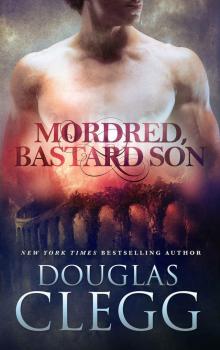 Mordred, Bastard Son
Mordred, Bastard Son Harrow: Three Novels (Nightmare House, Mischief, The Infinite)
Harrow: Three Novels (Nightmare House, Mischief, The Infinite)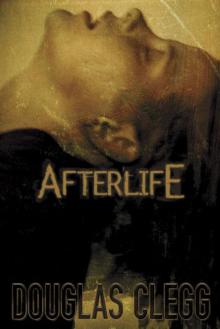 Afterlife
Afterlife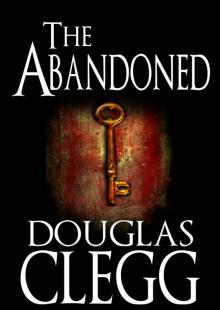 The Abandoned - A Horror Novel (Thriller, Supernatural), #4 of Harrow (The Harrow Haunting Series)
The Abandoned - A Horror Novel (Thriller, Supernatural), #4 of Harrow (The Harrow Haunting Series) The Queen of Wolves
The Queen of Wolves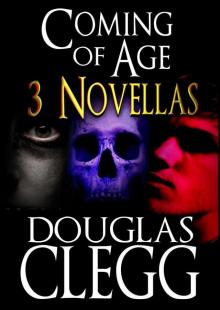 Coming of Age: Three Novellas (Dark Suspense, Gothic Thriller, Supernatural Horror)
Coming of Age: Three Novellas (Dark Suspense, Gothic Thriller, Supernatural Horror)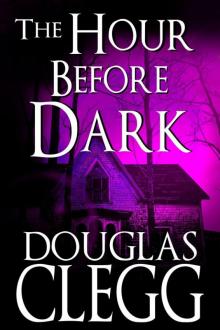 The Hour Before Dark
The Hour Before Dark Isis
Isis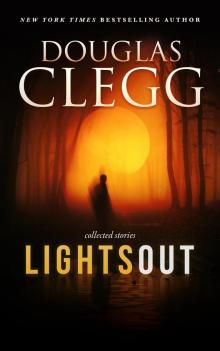 Lights Out
Lights Out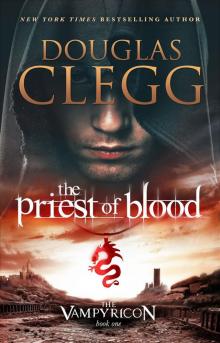 The Priest of Blood
The Priest of Blood Criminally Insane: The Series (Bad Karma, Red Angel, Night Cage Omnibus) (The Criminally Insane Series)
Criminally Insane: The Series (Bad Karma, Red Angel, Night Cage Omnibus) (The Criminally Insane Series) Halloween Candy
Halloween Candy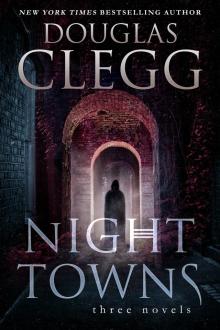 Nights Towns: Three Novels, a Box Set
Nights Towns: Three Novels, a Box Set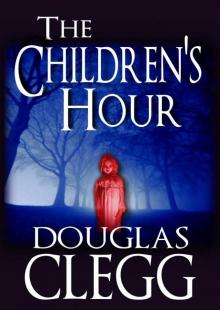 The Children's Hour - A Novel of Horror (Vampires, Supernatural Thriller)
The Children's Hour - A Novel of Horror (Vampires, Supernatural Thriller)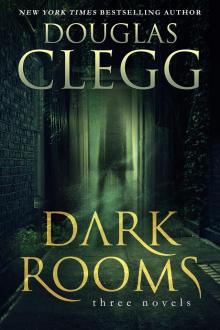 Dark Rooms: Three Novels
Dark Rooms: Three Novels![[Criminally Insane 01.0] Bad Karma Read online](http://i1.bookreadfree.com/i2/04/10/criminally_insane_01_0_bad_karma_preview.jpg) [Criminally Insane 01.0] Bad Karma
[Criminally Insane 01.0] Bad Karma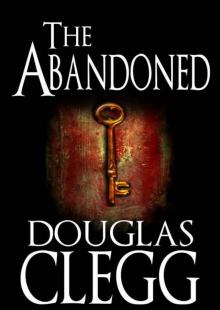 The Abandoned - A Horror Novel (Horror, Thriller, Supernatural) (The Harrow Haunting Series)
The Abandoned - A Horror Novel (Horror, Thriller, Supernatural) (The Harrow Haunting Series)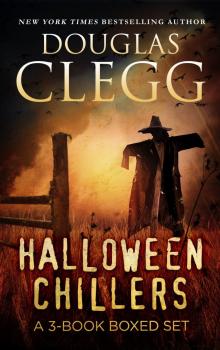 Halloween Chillers: A Box Set of Three Books of Horror & Suspense
Halloween Chillers: A Box Set of Three Books of Horror & Suspense